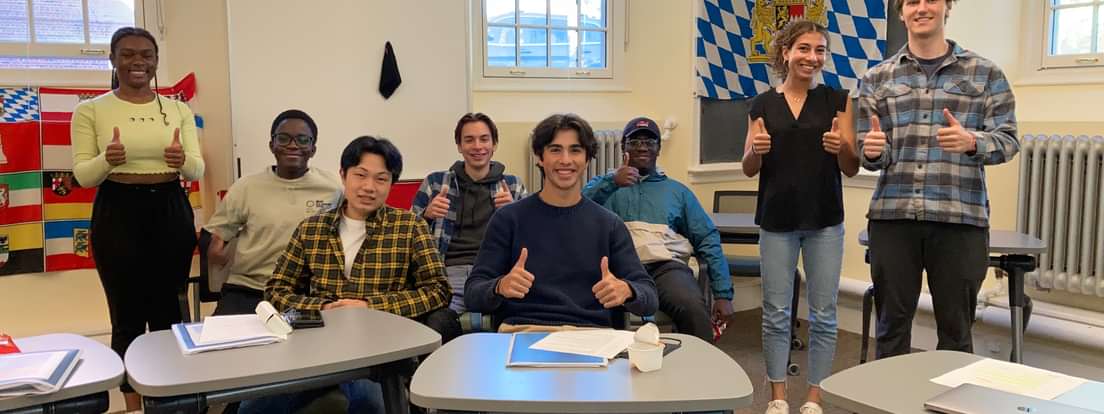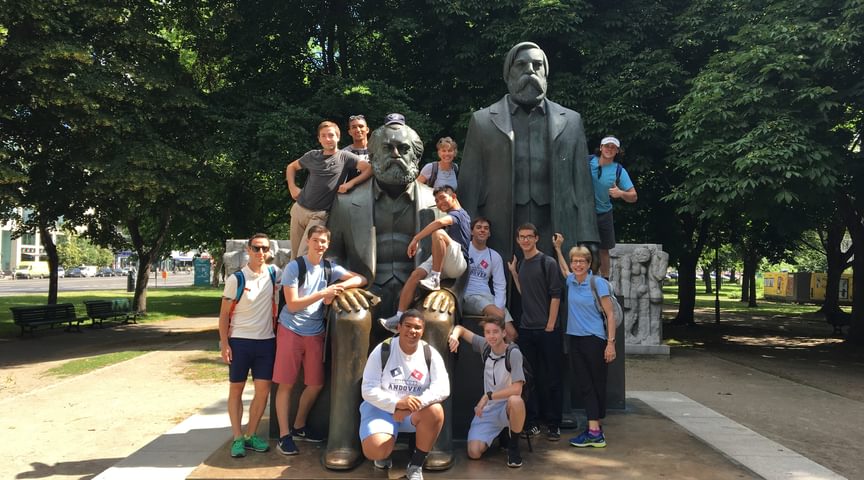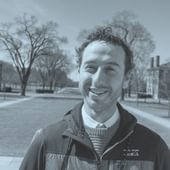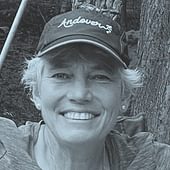
German
About Our Department
We believe that the understanding of other languages, cultures, and identities does indeed give us a unique insight into our own. With that understanding as a guiding principle, the German Department at Andover explores culture and identity in its language courses. Art, current events, film, history, music, poetry, and theater are key components of our course offerings.
To facilitate student learning our goal is to foster a positive, inclusive, and collaborative learning environment for all students. To that end we follow these best practices:
- Use German as primary mode of class instruction
- Assess student work multiple times per week
- Provide, timely feedback on work
- Provide additional support during conference periods and through the peer tutor program
- Solicit informal and formal student feedback on a regular basis
- Adapt courses on an ongoing basis to reflect students’ prior preparation
- Facilitate a 3-week summer homestay study program through the American Association of Teachers of German (AATG)
- Work collaboratively with each student to identify their best learning practices
He who does not know another language, does not know his own.
”
Students in Berlin, Germany.
Our Department
Meet the German team. Lisa Svec is the Department Chair.

Benjamin Duclos
Instructor in German & French, Assistant Coach for Cycling and Indoor Track & Field, House Counselor [email protected]“I approach my role as educator not with the goal that those students I work with necessarily develop into world-class linguists, runners or cyclists, but rather into ethically sound and morally courageous global citizens who have the tools and humility to make a better world, one built upon knowledge and goodness.”

Lisa Johnson Svec ’81
Instructor in German, Advisor, Recreational Nordic Ski Instructor, Devoted and Enthusiastic Former JV2 Soccer Coach (25 years), Lifelong Hiker, Avid Cribbage and Scrabble Player [email protected] view full profile“I try to create a positive, fun, inclusive class environment for my students, using music, theater, film, history, games, and off-campus opportunities to promote language learning. So lucky to be teaching and coaching these fabulous kids at Andover!”
IN THE CLASSROOM:
Third-Level German | GER300C
Berlin: From Imperial Capital to Weltstadt. This course is open to students who have successfully completed GER300B. Term 3 is designed to combine the study of the German language with the study of German culture and history. The language classes will focus on the integration of immigrant youth in today’s Berlin. The course materials, a 2010 documentary titled NeuköllnUnlimited, related newspaper articles, and music selections will provide students with the grammar and vocabulary that will enrich their understanding of the city’s transformation from an imperial capital to a multicultural world city.
The history classes will be taught in English and use Berlin as a lens through which to study some of the most transformative moments in German history: the unification in 1871, the First World War, the Weimar Republic, the rise of fascism and the Second World War, the postwar division of Germany, and finally the reunification of a divided Germany from 1989 to 1990. Readings will combine historical narrative with cultural studies of the art and architecture that form the Berlin landscape in order to understand how the city on the Spree was shaped by shifts in the nature of German national identity. Successful completion of this course satisfies the diploma requirement in German.
Sample Courses
German 100
German 100 is designed for the absolute beginner! No previous experience in German or any other world language is needed to enroll in this course. A yearlong elementary course in speaking, reading, writing, listening comprehension and culture. German 100 offers significant daily structure and support in order to facilitate successful language learning. Classes are highly interactive and include ample time for practice and Q&A. Songs, games, short videos, films, current events and history lessons are integrated into the language lessons.
German 300
The final course needed to complete the language requirement in German. In the fall term students learn to narrate short stories in oral and written format using the cartoon series Vater und Sohn. In the winter term the course focuses on the student resistance movement in Munich Germany during the 1940s. The adapted short story Sophie Scholl - Die Weiße Rose and feature film: Sophie Scholl: The Final days make up the course materials. In the spring term the class focuses on the Stolperstein art project by German artist Günter Demnig. Primary sources are the Stolperstein documentary, TV interviews and newspaper articles.
Learning in the World
The Berlin History, Culture and Language Program is designed to dovetail with German 300, “Berlin: From Imperial Capital to Weltstadt.” The 10-day program has two compelling objectives: to offer PA students additional language practice through half-day classes at the Inlingua Sprachcenter while connecting what they have learned about German history to the richness of present-day Berlin. This is experiential learning at its best.




